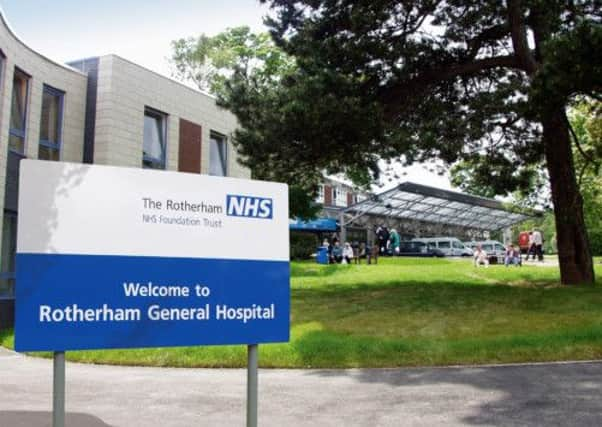Debt-ridden NHS trust runs up £240,000 bill for taxi journeys


Rotherham NHS Foundation Trust was saddled with an underlying deficit of about £14m by the end of March and is expected to run up further debts of £4.8m in 2013-14.
Bosses at health regulator Monitor have ordered a range of urgent improvements and an American-led team of turnaround consultants has been drafted in to tackle key problems including the implementation of a troubled computer-based patient record system which is massively over budget. The consultants from private firm Bolt Partners, which is affiliated with a US-based firm of turnaround and strategy healthcare specialists, Healthcare Management Partners, have set a target of achieving rapid cost reductions in areas they say will not affect patients, although full plans to save a target of £13m in 2013-14 remain unclear.
Advertisement
Hide AdAdvertisement
Hide AdImmediate measures include a series of savings worth £5m from corporate budgets including plans to slash spending on taxis from £240,000 last year to £156,000.
In a report, officials said taxis have been used “inappropriately and inefficiently”, with no policy in place for their use, and have ordered tighter controls on booking them, including for the delivery of drugs to patients.
Further curbs are being placed on language interpreters to obtain more services over the telephone rather than face-to-face which is aimed at saving some £39,000, bringing the annual bill down to £159,000.
Officials also plan to cut bills for locum and agency medical staff by £900,000 to £3.3m and reduce spending on extra sessions by doctors and initiatives to tackle long waiting lists by £300,000 to £1.2m.
Advertisement
Hide AdAdvertisement
Hide AdThey say further savings have been obtained following the exit of six senior executives since October. None are being replaced as part of a major shake-up of the management team, although the costs of the external consultants brought in to run the trust total nearly £120,000 a month. A new chief executive is due to be appointed later this year.
Other measures will include better use of operating theatres, reductions in the length of hospital stays and delayed discharges, as well as cutting admissions.
They also plan to examine the scope for further savings by unspecified outsourcing amid plans to make savings of up to £15m in each of the two following years.
In the longer term, officials say management will need to look at the provision of health services in the area, including sharing services with staff at neighbouring hospitals in Sheffield.
Advertisement
Hide AdAdvertisement
Hide AdThe electronic patient records system was due to cost £30m, but the bill is now expected to be at least £40m.
An agreement has been reached to try to fix its problems which caused chaos in the appointments system, with patients arriving for consultations when they were not expected, leading to many staff refusing to use it.
Further plans will be drawn up in coming months to improve services and save money.
A strategic three-year plan for the trust will be drawn up by the end of September for the regulator Monitor which has stopped short of formally intervening at the trust, but has accused a previous management regime of being slow to act over the worsening financial position.
Advertisement
Hide AdAdvertisement
Hide AdFinal figures show the trust aimed to cut costs by £15.4m in 2012-13, but achieved only £10.6m of its target.
It is not expected to return to financial balance until next year.
In March, officials at the now-defunct NHS Rotherham handed the trust £6.9m in additional funding to help with the cost of restructuring and to make up a shortfall in income caused by problems with the computer system which led to 5,000 fewer outpatient appointments than expected between June and August last year.
Officials also revealed in February that more than £600,000 had been lost in a foreign-based email scam.